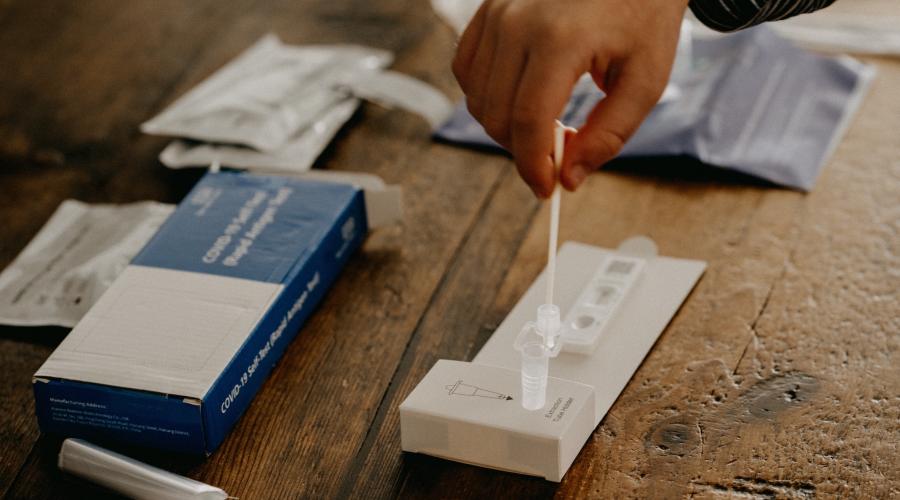
Testing for COVID-19 at Home? Test Twice, Two Days Apart
Testing twice, one to two days apart, improves testing accuracy for symptomatic individuals using home COVID-19 antigen test kits, shows a new study led by UCSF Pediatric Infectious Diseases Fellow Victoria Chu, MD, MPH.
“Home antigen test sensitivity peaks several days after illness onset and test sensitivity can improve by over 30% with a second test,” explains Chu. "People who have new COVID-19 symptoms but who test negative on their first home antigen test should consider a repeat antigen test one to two days later or a PCR test.”
In the study published in JAMA Internal Medicine, participants with new COVID-19 diagnoses (and those sharing housing with them) took home antigen tests every day for 15 days. On the first and last day, nasopharyngeal swabs were also obtained from each participant for PCR testing and viral culture. Researchers tracked how home antigen tests performed in comparison with the gold-standard PCR test and with viral culture.
Overall, the home antigen test performed best among symptomatic individuals and in the first week after symptom onset when compared with PCR tests. While most individuals continued to have positive PCR tests up to 20 days after symptom onset, most individuals tested negative by home antigen 8 days after symptom onset. The timeline of test positivity for home antigen tests more closely matched viral cultures, a test which detects live SARS-CoV-2 virus.
Reassuringly, researchers found that while errors in self-collection and testing with home antigen tests were observed, this did not seem to affect the test accuracy.
Current CDC guidelines recommend that individuals can end their isolation 5 full days after symptoms first appear if their symptoms are improving and they have been without a fever for 24 hours. CDC allows for home antigen tests in such a situation to confirm that they no longer need to isolate. More than half of the individuals in the study were still testing positive using home antigen tests after 5 days and thus would have to isolate for a full 10 days.
The study’s data will be leveraged to better understand how to use the widely available home antigen tests.
Chu is a fellow in the Division of Infectious Disease and Global Health.
